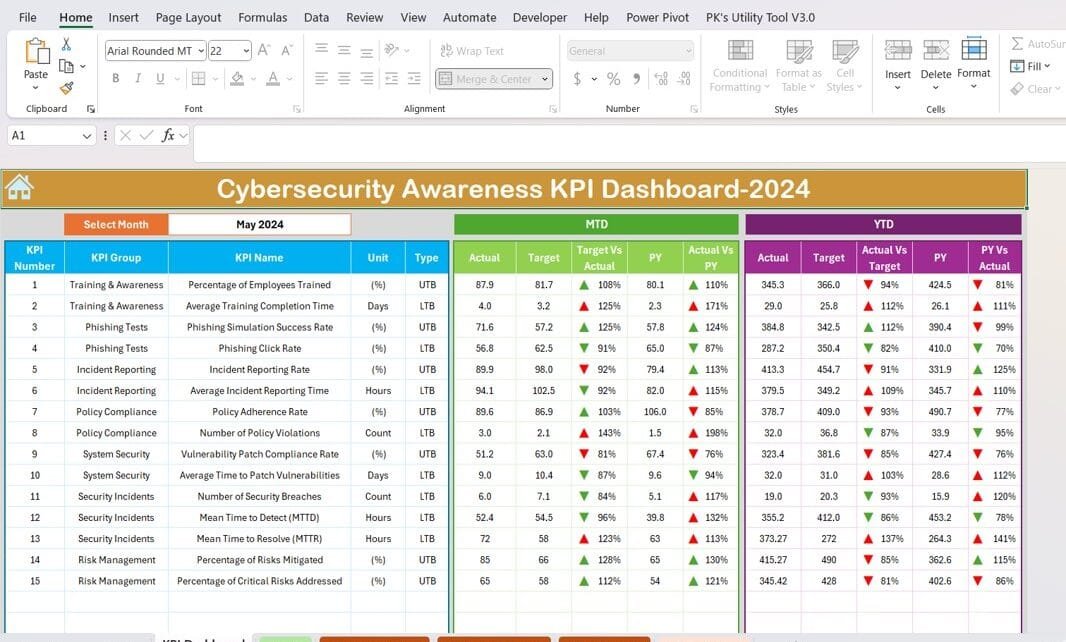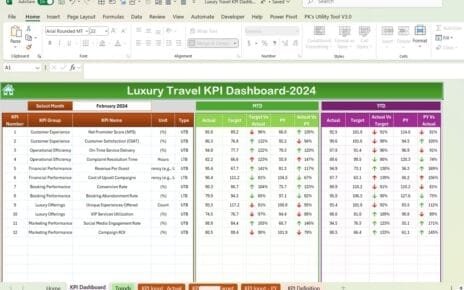In today’s tech-savvy world, staying a step ahead in cybersecurity is vital. That’s where our Cybersecurity Awareness KPI Dashboard in Excel swoops in to save the day! Designed to simplify your security metrics, this tool ensures that your organization remains fortified against threats and vulnerabilities. Let’s delve into how this dashboard can become your go-to resource for cybersecurity management Cybersecurity Awareness KPI Dashboard.
Click to Cybersecurity Awareness KPI
Introduction to the Cybersecurity Awareness KPI Dashboard
So, what exactly is the Cybersecurity Awareness KPI Dashboard? It’s a thoughtfully crafted Excel template that supports organizations in monitoring their cybersecurity health through essential metrics. By highlighting monthly and yearly insights, it helps keep your security measures on track, whether you’re overseeing a team or the entire organization.
Discover the Core Features
Home Sheet:
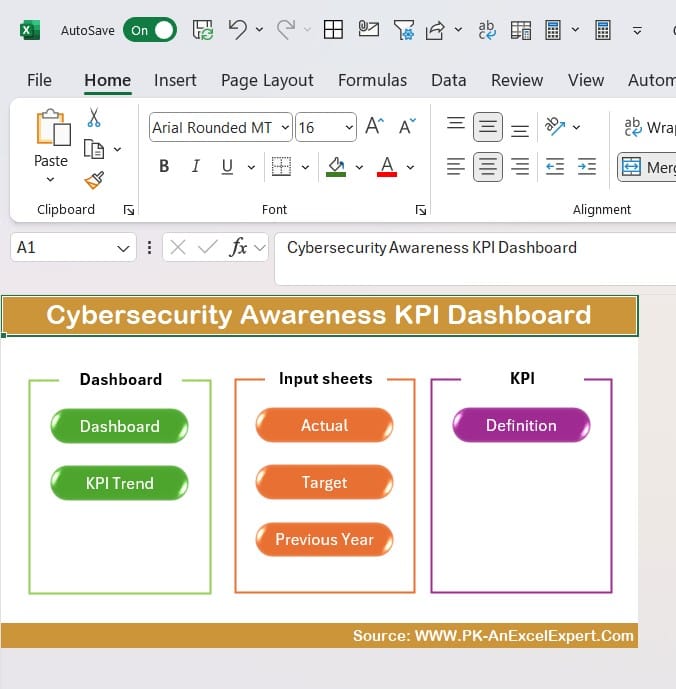
Click to Cybersecurity Awareness KPI
- The central hub of your dashboard! This sheet features six clickable buttons, making navigation between sections a breeze. It’s all about saving time and enhancing user experience.
Dashboard Sheet Tab:
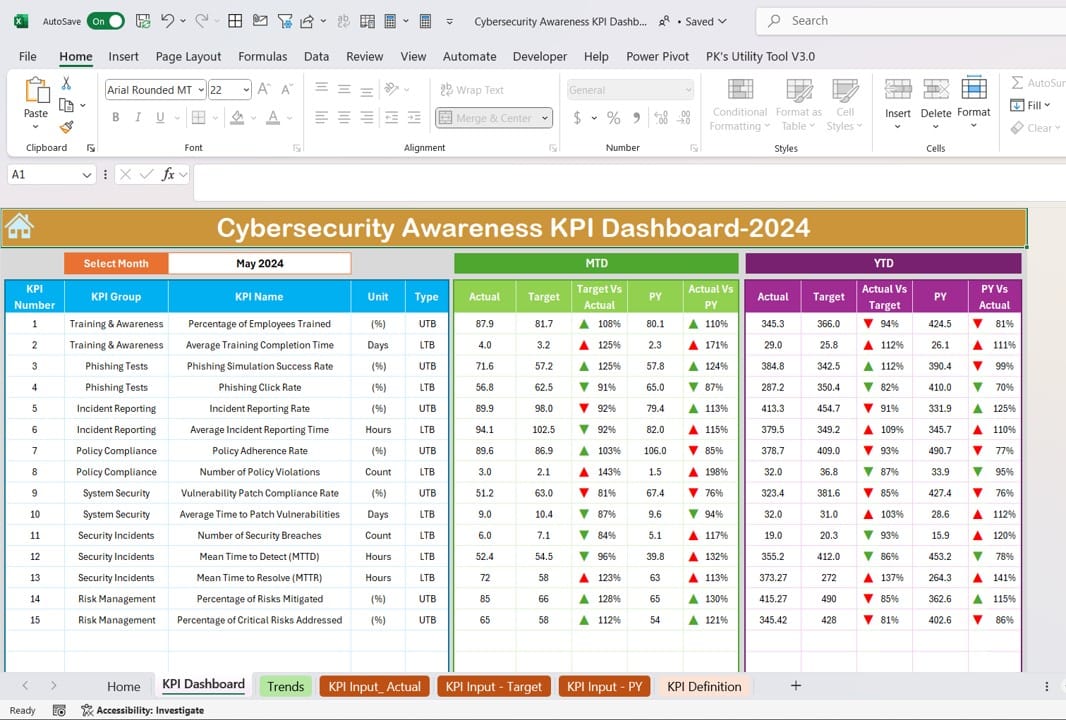
Here’s where the magic happens. All your KPIs are displayed interactively. Select a month from the dropdown menu at cell D3, and watch the data update instantly! It’s packed with:
- Month-to-Date and Year-to-Date actuals, targets, and comparisons to previous years.
- Visual indicators like arrows that show performance against targets and year-on-year changes.
KPI Trend Sheet Tab:
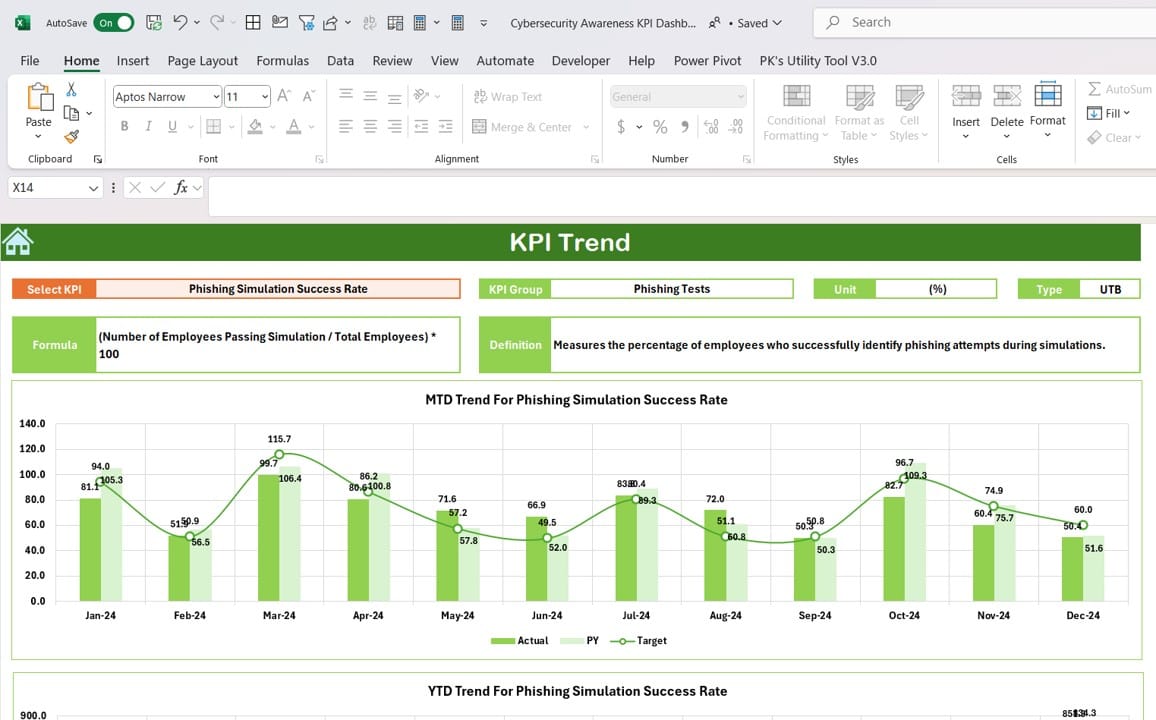
Click to Cybersecurity Awareness KPI
- Dive deep into individual KPI trends. Choose a KPI from the dropdown, and access detailed data such as KPI groups, measurement units, and performance types, alongside visual graphs showing trends over time.
Actual Numbers Input Sheet:
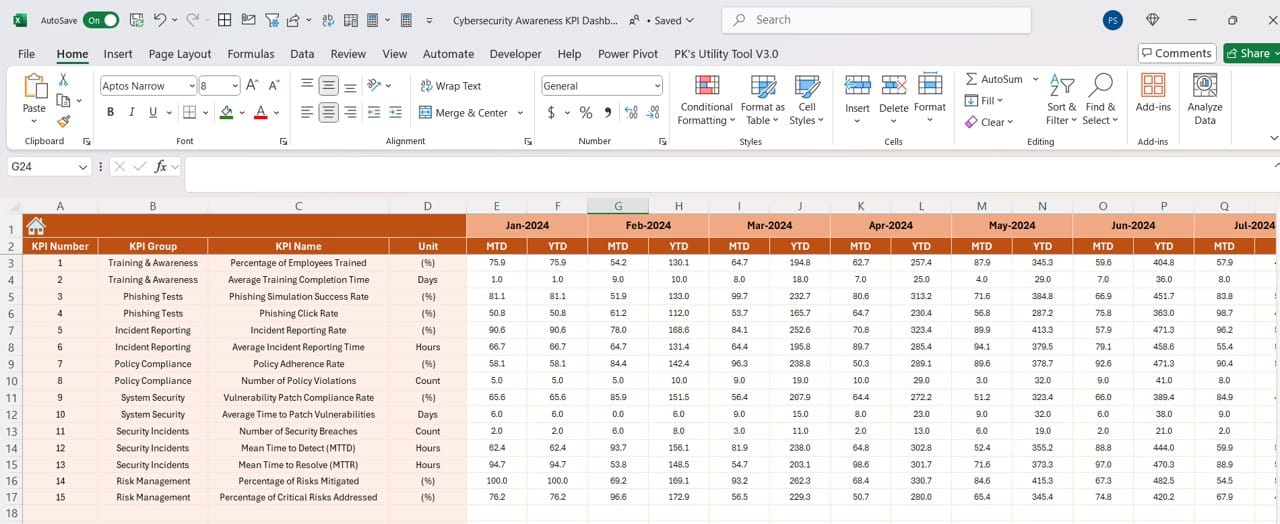
- The go-to sheet for data entry. Here, you can enter real-time data for an accurate overview.
Target Sheet Tab:

- Set and adjust your monthly and yearly targets to ensure your goals are clear and attainable.
Click to Cybersecurity Awareness KPI
Previous Year Number Sheet Tab:

- By comparing with the previous year’s data, this sheet helps you gauge progress and identify areas needing improvement.
Click to Cybersecurity Awareness KPI
KPI Definition Sheet Tab:
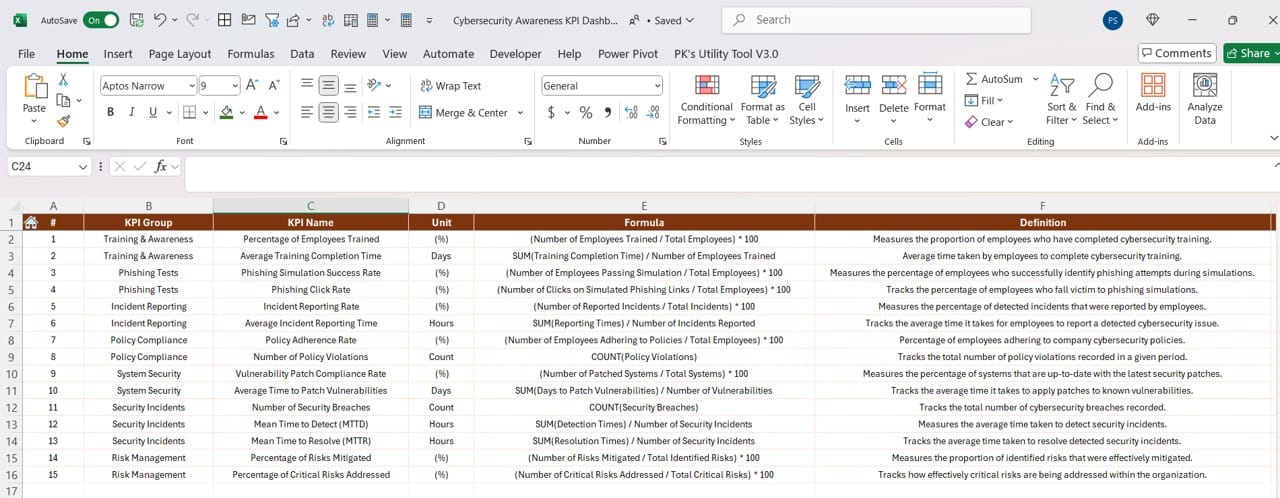
- A comprehensive repository of all KPI-related info — from names and formulas to detailed definitions.
Why You Should Use the Cybersecurity Awareness KPI Dashboard
- Immediate Clarity: Offers a holistic view of your security posture, helping identify strengths and pinpoint vulnerabilities swiftly.
- Interactive and Customizable: Engage with your data through dynamic charts and dropdown menus.
- Accurate and Comparative Insights: Actual vs. Target and year-on-year data aid informed decision-making.
- Visual Feedback: Quick visual cues like arrows help in understanding trends at a glance.
- Centralized KPI Information: Keeps all crucial data in one place, streamlining processes and maintaining consistency.
Best Practices for Optimal Use
- Define Your Metrics: Start with the KPI Definition Sheet to align each indicator with your strategic goals.
- Keep Data Fresh: Regularly update the Actual Numbers Input Sheet and adjust targets as needed to keep the dashboard relevant.
- Watch the Trends: Regular trend analysis can help you catch and mitigate issues early.
- Share Insights: Discuss dashboard findings in team meetings to promote accountability and encourage proactive actions.
- Revise and Adapt: As your organization grows, revisit and refine your KPIs to stay relevant and effective.
Click to Cybersecurity Awareness KPI
Wrapping Up
The Cybersecurity Awareness KPI Dashboard isn’t just a tool; it’s your partner in fostering a vigilant organizational culture. With its intuitive design and comprehensive functionality, it’s geared to help you stay ahead of potential threats and make decisions that fortify your defenses. Ready to enhance your cybersecurity approach? The dashboard is here to propel you forward!
FAQs About the Cybersecurity Awareness KPI Dashboard
Q1: What are Cybersecurity Awareness KPIs?
They are quantifiable measures that reflect how well your organization is educating its team about cyber threats.
Q2: Can I tailor this dashboard to my needs?
Absolutely! Adjust KPIs, formulas, and targets to suit your specific requirements.
Q3: How often should I update the dashboard?
A monthly update is ideal for keeping your insights fresh and actionable.
Q4: Is this dashboard suitable for beginners?
Yes, it’s designed to be user-friendly for all, regardless of technical background.
Q5: What do I need to run the dashboard?
Just Microsoft Excel. No extra software required.
Click to Cybersecurity Awareness KPI
Visit our YouTube channel to learn step-by-step video tutorials
View this post on Instagram
